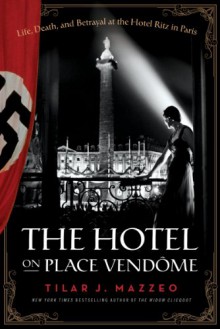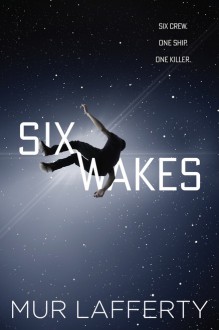
After The Apocalypse" is a collection of nine short stories that look at events in different near-futures after a disaster of some kind.
As you'd expect with Maureen McHugh, the stories tell us as much about the world we live in as the possible future being described.
She has a flair for looking at the world through the eyes of the disadvantaged, the marginalized and the at risk and an impressive ability to build future worlds and believable characters using very few words. Almost every story describes a near-future that stimulates, surprises and convinces and populates it with characters that I recognize and care about.
If you're not familiar with Maureen McHugh's work, this is a good introduction. If you're already a fan then these stories are a treat not to be missed.
I've given short comments on each story below to give you a flavour of the collection. Some of them are available on line if you want to sample them but to get them all, you'll need to buy the book.
The Naturalist
This is dark, surprising and not at all your average zombie story. In this tale of a Zombie Preserve being used as a prison compound cum death-by-zombie execution sentence, the walking dead are not the thing you should be afraid of. I enjoyed the way this story makes the Rational Observer, so beloved of many science fiction stories, into something quite chilling.
This near future story is set in a post-plague China, faced with a scarcity of workers for the first time. It describes a brand of Corporate Slavery that was once common in the US and is now rumoured to be used when the US outsources work to less regulated nations. It appealed to me because it showed how ordinary people will find a way to overcome the economic obstacles in their way.
This is one of the simplest and most powerful stories in the book. It is permeated with a sense of threat, of the real possibility of imminent loss. It captures the quiet desperation of living a life on the edge of an unstoppable slide into poverty and homelessness; of wanting to help others but being afraid that they will do you harm; of having little control and less hope; of having enough to lose to cause worry but not enough wealth to buy security. It's the perfect tale for Trump's America.
The Lost Boy: A Reporter at Large
This one didn't engage me. It felt like an essay on disassociative states and what they imply about identity. It was interesting but it didn't hook my emotions.
This is the most plausible story about the possible emergence of an AI "awareness" that I've read. It's mercifully free of anthropomorphization. There are also so nice points made about women in the coding world that made me think of the recent Google embarrassment.
Going to France
This is the shortest story and the most bizarre. I felt its pull but it was just a little too far out for me.
Honeymoon
I loved the first line of this:
"I was an aggravated bride."
It got me straight inside the head of the woman telling the story. She's a forceful working class woman, who's been working in McDonald's plus two other jobs that paid for her wedding. At first, it seems that she's leading a relatively unexplored life but as the story progresses and she faces some abnormal events, it becomes clear that she is making informed, even philosophical choices because that's the kind of person she is.
This is told from multiple points of view. Unfortunately, the narrator didn't demonstrate this very well and I got confused from time to time. It's focused on people under pressure who can't hold themselves or their lives together.
After the Apocalypse
This is the strongest story in the collection. It showcases Maureen McHugh's ability to help us see the people in the situation and then help us to see the situation differently.
We've been saturated with post-apocalyptic worlds where we revert to something less than we used to be in order to survive. We've been fed tropes about tough survivalists and ruthless raiders and the crumbling remnants of an order that doesn't know it's already extinct. It's like we're practising for something that we expect to happen soon so that we'll know what to expect and what choices to make.
We've been saturated with post-apocalyptic worlds where we revert to something less than we used to be in order to survive. We've been fed tropes about tough survivalists and ruthless raiders and the crumbling remnants of an order that doesn't know it's already extinct. It's like we're practising for something that we expect to happen soon so that we'll know what to expect and what choices to make.
The achievement of this short story is that it humanises the tropes we've been taught. It shows us that, in other parts of the world, the apocalypse has already arrived and that the flood of refugees we are so used to seeing on the media could one day be us.
The story is told from the point of view of a woman on the road with her daughter, heading through an America without electricity or fuel or clean water or food or any of the things that Americans take for granted.
As they travel, the woman slowly comes to realise that everything she knew is gone. That even though she's an American, she's now just another refugee. Then she decides what to do about it.
Her situation, her reactions and her final choice seemed very real to me. After the apocalypse, we're still there, only the future we assumed we were entitled to is missing. Dealing with that realisation would tell each of us a great deal about who we have always been.




 Log in with Facebook
Log in with Facebook 



































